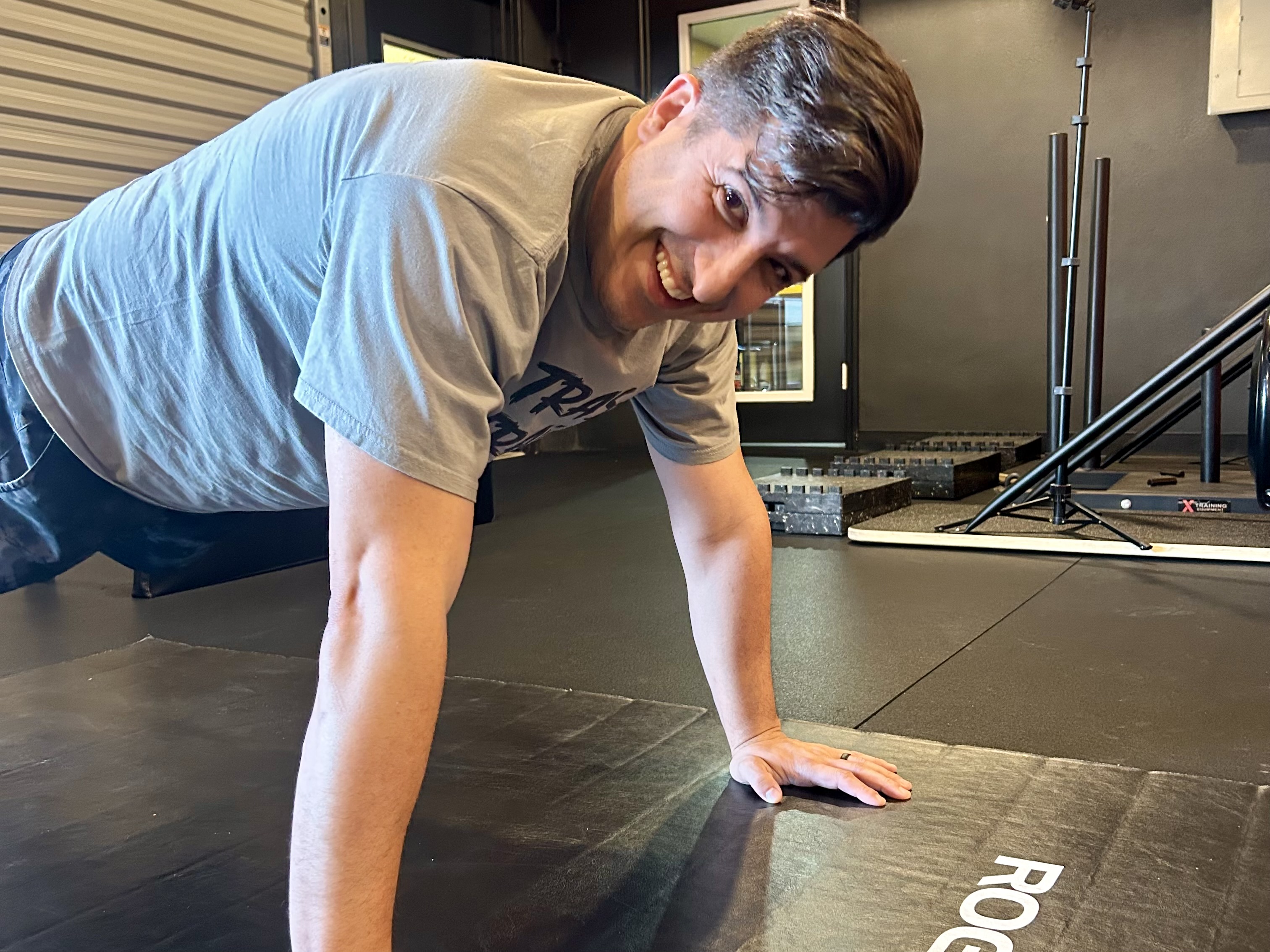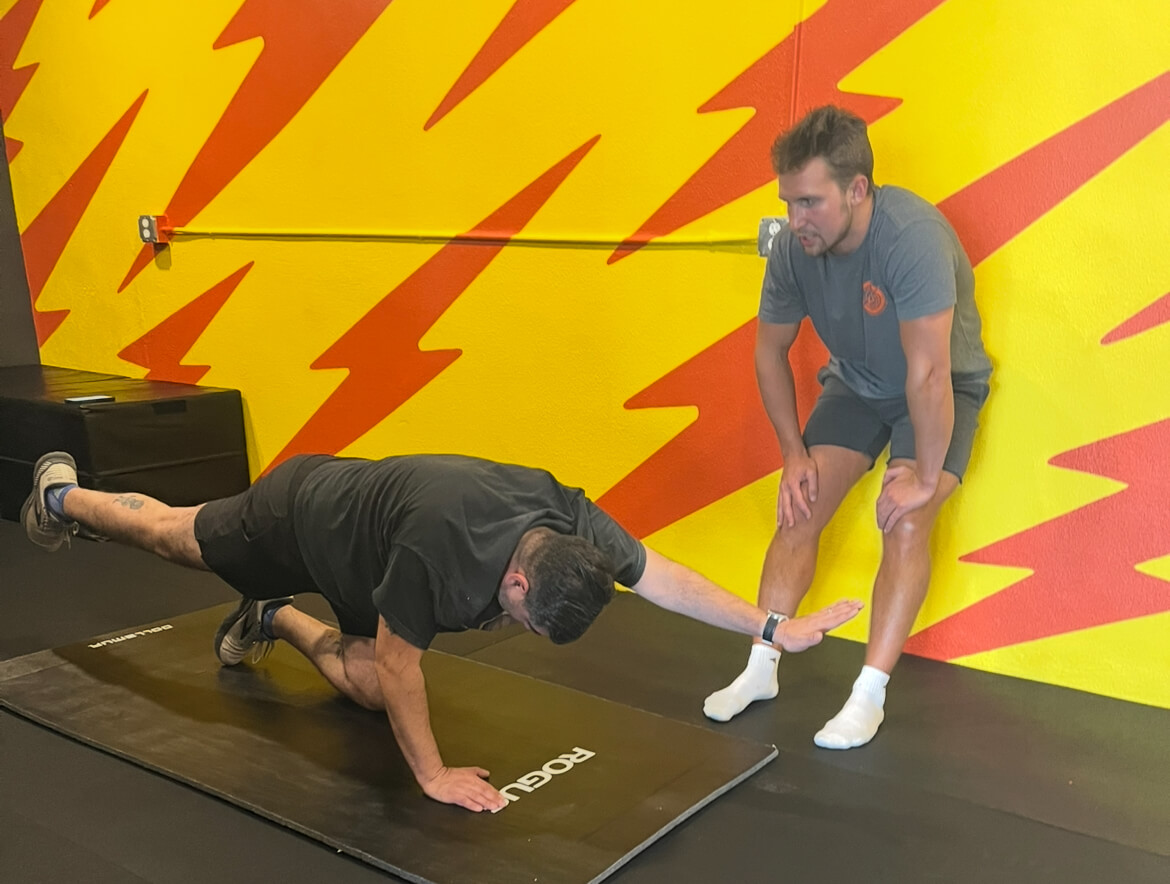If you’ve been anywhere near a health magazine or fitness website lately, you’ve probably heard about intermittent fasting (IF). Some people swear by it, saying it’s the best thing since sliced bread (which, ironically, they might not be eating). Others think it’s just another diet trend that will disappear like low-fat everything did in the 90s.
So, is intermittent fasting actually good for you? Is it healthy? Does it help with strength and longevity? Or is it just another fad?
As a personal trainer with a team that has combined decades of experience, I help people—especially those in their 50s, 60s, and beyond—build strength, stay energized, and live long, healthy lives. I’ve seen many trends come and go, but intermittent fasting is one that actually has some solid science behind it. However, it’s not for everyone, and there’s definitely a right way to do it, especially if you care about muscle mass, energy, and longevity.
Let’s dive in and see if intermittent fasting is right for you.
What Is Intermittent Fasting?
Intermittent fasting isn’t a diet—it’s an eating schedule. Instead of focusing on what you eat, it focuses on when you eat. There are several ways to do it, but the most common methods include:
- 16:8 Method: Fast for 16 hours, eat within an 8-hour window.
- 5:2 Method: Eat normally five days a week, then eat very few calories (500–600) on two non-consecutive days. This is a very small allocation, but some people find this method helpful, because it isn’t a complete 0 calorie fast.
- Alternate-Day Fasting: Fast every other day.
- One Meal a Day (OMAD): Eat one large meal a day and fast the rest of the time.
Most people choose the 16:8 method because it’s the easiest to maintain and doesn’t feel too restrictive. If you are just starting out, try 14:10 and see how that feels. Eat something at 8:30 am and eat your last meal at 6:30 pm, for example. Personally, I just skip breakfast and have lunch and dinner, with a few snacks and that works for me, creating the 16:8 split.
The Benefits of Intermittent Fasting
Many studies show that fasting can have some great health benefits. Here are some of the biggest perks:
- Supports Longevity – Research suggests that fasting may help you live longer by reducing inflammation, improving cell repair, and lowering the risk of diseases like heart disease and diabetes.
- May Improve Metabolic Health – Fasting can help with insulin sensitivity, which means your body can handle sugar better. This may lower the risk of type 2 diabetes.
- Aids in Fat Loss – When you fast, your body burns stored fat for energy. This can help with weight management, especially if paired with strength training.
- Boosts Brain Health – Some research shows fasting may improve memory and brain function, which is important as we age.
- Simplifies Eating – No need to worry about multiple meals a day. Some people find fasting helps them eat more mindfully.
Sounds pretty great, right? But before you jump in, let’s talk about the challenges, especially when it comes to muscle and energy.
The Problem: Muscle Loss and Energy Levels
One of the biggest concerns with intermittent fasting—especially as we get older—is muscle loss. As we age, we naturally lose muscle, and fasting the wrong way can speed that up.When we fast for too long without enough protein or strength training, the body can break down muscle for energy. That’s the last thing we want! Muscle is key for staying strong, preventing falls, and keeping our metabolism high. Another problem? Energy levels. If you’re training hard (which you should be!), you need fuel. Fasting for too long without proper nutrition can lead to fatigue, making it harder to get through workouts and stay active. So, how do we do intermittent fasting right?
How to Fast the Right Way (and Keep Your Strength!)
If you want to try intermittent fasting without losing muscle or feeling sluggish, follow these key tips:
1. Don’t Skimp on Protein
When you break your fast, focus on high-quality protein. Foods like eggs, chicken, fish, Greek yogurt, and protein shakes help maintain muscle. Aim for at least 25-30 grams of protein per meal.
2. Strength Train Regularly
Lifting weights is essential, especially as we age. Strength training tells your body to hold onto muscle instead of breaking it down. Train at least 3-4 times a week, focusing on full-body movements like squats, deadlifts, and push-ups.
3. Eat Enough Calories
Fasting doesn’t mean starving! Make sure you eat enough during your eating window to support your activity levels. If you under-eat, you’ll lose muscle and feel tired.
4. Time Your Workouts Wisely
If you like to train in the morning, consider a small pre-workout snack like a banana or a protein shake. If you train later, time your biggest meal after your workout for better recovery. Since a lot of people like to eat towards the end of the day, allow yourself a window that takes your realistic eating habits into account.
5. Hydrate and Get Electrolytes
Fasting can lead to dehydration if you’re not careful. Drink plenty of water and include electrolytes (like sodium, potassium, and magnesium) to avoid fatigue and muscle cramps.
6. Listen to Your Body and Plan for Social Situation
Not everyone feels great fasting. If you’re constantly tired, cranky, or weak, fasting might not be the best fit for you. Pay attention to how your body responds. It’s also important to anticipate social situations where a large spread and social pressures can combine with some hunger after a fasting window to completely demolish your plans. It’s important to startegize a bit in advance, and also allow yourself a bit of leeway. If a day isn’t perfect, tomorrow is a whole new day! You can seek out healthier snack options and limit your alcohol intake, while focusing on your long term goals.
Who Should Be Careful with Intermittent Fasting?
While fasting can work well for some people, it’s not for everyone. You should be cautious if you:
- Have a history of disordered eating
- Struggle with low blood sugar
- Feel overly fatigued or weak while fasting
- Have medical conditions that require regular meals
If any of these apply to you, talk to a doctor or nutrition expert before starting intermittent fasting.
The Bottom Line: Is Intermittent Fasting Worth It?
Intermittent fasting can be a helpful tool for weight management, brain health, and longevity—but only if done right. If you’re over 50 and want to maintain strength, focus on eating enough protein, lifting weights, and fueling your workouts properly. For some people, fasting feels great and simplifies life. For others, it’s too restrictive. The best diet is one that fits your lifestyle, keeps you energized, and helps you feel strong. If you’re curious about fasting, start slow. Try a 12-hour fast first (like from 7 PM to 7 AM) and see how you feel. If that works well, you can try a longer fasting window. Remember—your health is about the long game. Stay strong, stay fueled, and keep moving forward!
Want More Help?
If you’re looking for personalized fitness and nutrition coaching that fits your goals, I’d love to help. At The Athleticus, we specialize in elite, tailored training for those who want the best. Contact us today and let’s build a plan that works for you!




